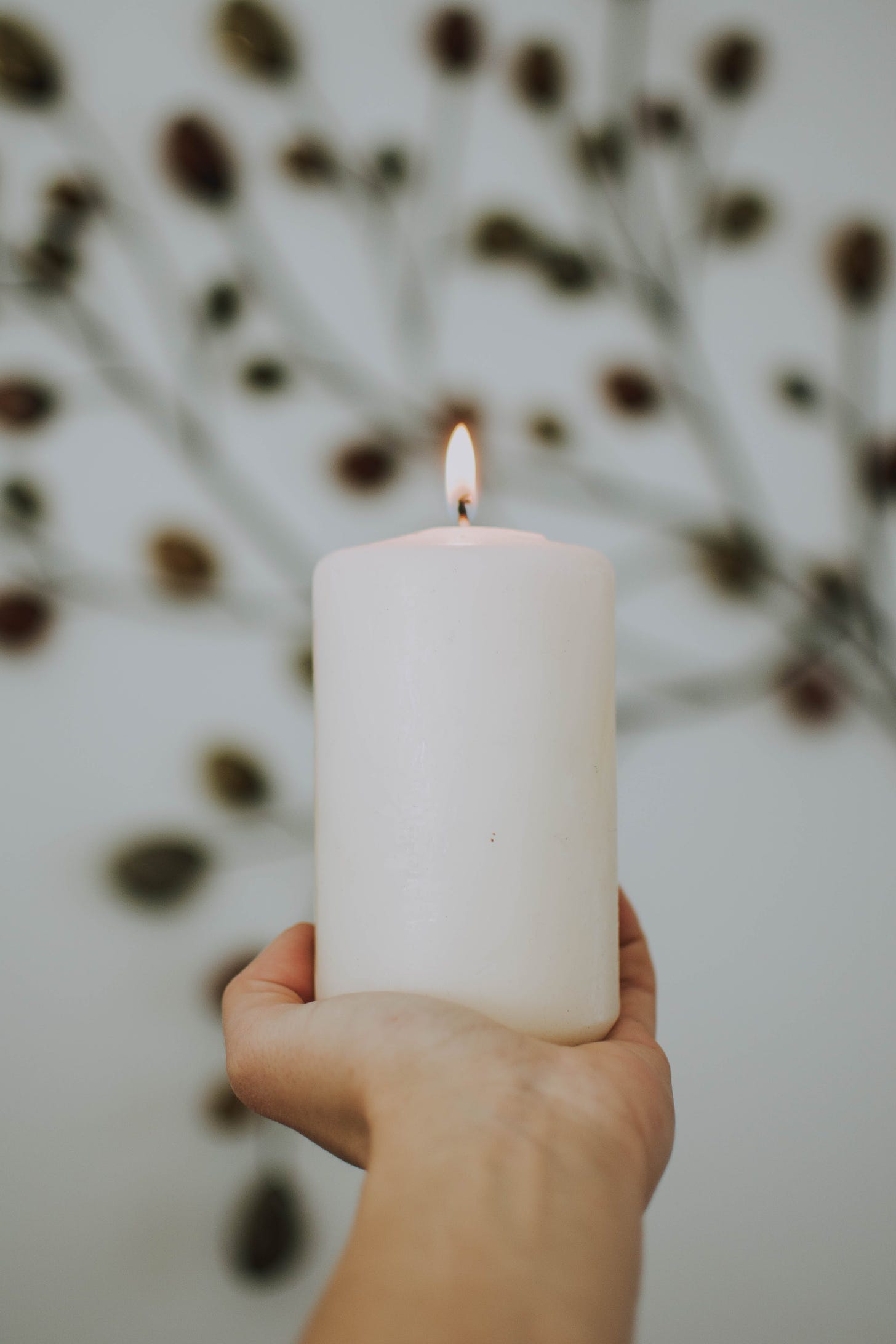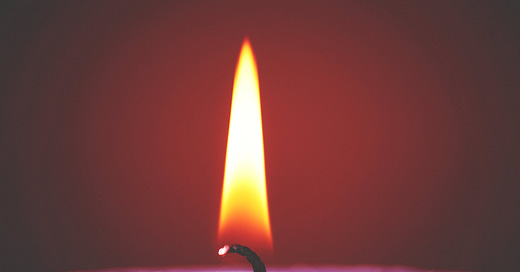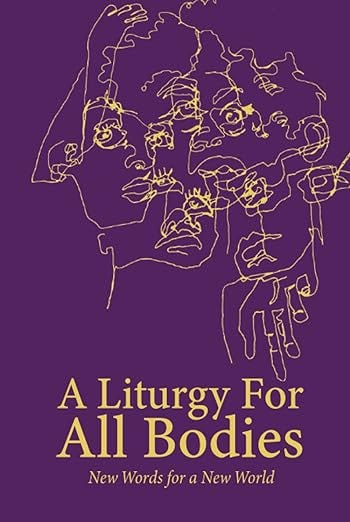Hello friends. This week’s Friday Nudge is a day late thanks to Covid visiting me again. I am grateful for Paxlovid and the city pharmacy that delivered it, with a kind personal note from the pharmacist, for free!
This Sunday, we begin the season of Advent, that time of holy waiting in the Christian calendar. Since so many of you have subscribed in the last year, I want to offer here the Advent reflections that I wrote last year; they consider what it means to wait for the birth of Christ in light of our 13.8-billion-year history as a universe in all of its dimensions. Each week I will invite you to go deeper into the Advent mystery. Below is the reflection for this first week of Advent: “A New Way of Understanding.
Welcome! I’m Jessica, and this newsletter is about faith and climate action. You can subscribe by clicking here:
In addition to the Advent reflection, I have a couple of other items for you today. Below you’ll find an announcement and invitation to a Climate Prayer Vigil that I am beginning next week (assuming I am clear of Covid by then) to coincide with the beginning of Advent. Also, a dear friend contributed to a powerful book of liturgy that, while not exclusively about ecology, offers much wisdom on transforming worship to center the experiences of those who are marginalized in our world. Please read and enjoy all that this newsletter has to offer!
Climate Prayer Vigil
Beginning on Thursday, December 7 to coincide with the first week of Holy Waiting in Advent, I will be going to Parliament Hill in Ottawa to offer a noontime climate prayer vigil. Every Thursday, from Noon - 1:00 pm, I will be at the Centennial Flame to pray for the Canadian federal government to stop all subsidies and other financial support for the fossil fuel industry. I will be doing so every week until this prayer is answered or the Holy Spirit directs me otherwise!

Please join me, in person or virtually from your location, every Thursday, Noon - 1:00 pm EST.
Want to support my work but not ready or able to subscribe yet? You can buy me a coffee! Click here:
Advent Reflection
Advent 1: A New Way of Understanding
4 I give thanks to my God always for you because of the grace of God that has been given you in Christ Jesus, 5 for in every way you have been enriched in him, in speech and knowledge of every kind— 6 just as the testimony of Christ has been strengthened among you— 7 so that you are not lacking in any spiritual gift as you wait for the revealing of our Lord Jesus Christ. 8 He will also strengthen you to the end, so that you may be blameless on the day of our Lord Jesus Christ. (1 Corinthians 1:4-8, NRSV)
In this passage, we are called to wait expectantly for the revelation of Jesus Christ. Perhaps it might help us to realize that Jesus came to us fully human, embodied entirely as an Earth creature, part of the Earth community. Despite some more supernatural ways of thinking about the birth of Christ, it can be helpful to remember that Jesus was born into this world through evolution; through the powerful, surprising, and still mysterious process of life changing, growing, and evolving to meet the conditions and needs of the wider ecosystems.
The deep Mystery that is born into the world with, in and through Jesus Christ has emerged from the same deep time from which each one of us has emerged. God, who created us and is continuing to create, brought the universe into being 13.8 billion years ago in a moment of such exquisite precision, that if the Big Bang had been a trillionth of a second slower or faster, it would have either imploded or exploded back into the nothingness that was there before.
My faith tells me, then, that God knew, at that fateful precision point 13.8 billion years ago, that one day, on a planet that wouldn’t come into existence until 4.5 billion years ago and on which life wouldn't emerge until 3.7 billion years ago, that one day Jesus would be born. God knew, so long ago in deep time, that one day the Incarnate One would come into the world, through the processes of the universe and evolution, and change everything. One day.
So God knows something about waiting, yes? God knows about the liminal experience of waiting, when it seems to take so long, whatever it is we are waiting for. When we don’t know if our expectancy can hold on! I invite you to take some time this week to pray. Pray with Mary, if you wish. Pray into the deep time from which we all come, the deep time that brought forth the stars and the galaxies, the supernovas and the sun, the Earth and its mysterious process of life. Pray into the deep time that brought forth Jesus, the one whom we wait for this Advent. Pray, and let yourself sink into that deep time, such a long time of expectancy. Such a long time waiting for Hope to be born, and for Hope to come back again.
Convicting and Transforming: A Book Review of A Liturgy For All Bodies: New Words for a New World (ALFAB)
By the Embodied Liturgy Collective (Cyclical Publishing, 2022)
Buy the book HERE.
I have known the Rev. Dr. Lisa Waites as both a colleague and personal friend for nearly five years now. We have walked together and shared our lives as we have gone through our challenges, praying for one another, shoring each other up, laughing and crying together, and helping one another in our faith journeys. When Lisa told me that she had contributed to this powerful collection on liturgy for our time, I was both excited and honoured to read it.
Before I did so, I prepared myself. I knew that A Liturgy For All Bodies (ALFALB) would offer both invitation and challenge by the authors, and especially by God herself, to be transformed and changed in the ways that I understand both private and collective worship, how my prayer life and ministry leadership have been both empowering as well as reinscribing of outdated and harmful concepts of God, self and the other. I prepared myself and yet was still astounded and humbled by the prophetic power of the words, hymns, prayers, and poems that speak of a God and her people that are often ignored or left on the edges of our world.
We are living in a world right now in which people who do not fit within the white, cisgender male, heterosexual, middle-class norm are told that they do not fit. Inside the church, this narrative is repeated again and again. Even within faith communities that preach justice and inclusion, this continues more often than we realize or want to admit. Yet, as people of faith, we say that we believe that God created us all in the image and likeness of God, and that we are all beloved of God.
This is a book that takes it seriously that we are made in the image of God, and offers liturgy shaped by the experiences of those on the margins: the disabled, the neurodivergent, women’s bodies, BIPOC bodies, and queer bodies. This is a book that believes that liturgy, when done well, can not only reshape worship, it can reshape our individual and collective expressions and experiences of faith, and as we move out into the world from worship, reshape the world.
How is this so? Lisa says it well:
“The liturgy is a discipline and a delight, a habit of holiness, a flexible instrument of spiritual formation and theological resistance for all believers who are willing to regularly use it. It is a language that carries not only our words but also our wounds; it conveys our human expressions of songs and silences, prayers and pauses, sacraments and service; the liturgy carries our despair and our delight, our grief and our gratitude to the very heart of God.
The liturgy is also a powerful tool of resistance…” (p. xxiv)
When we shape liturgy to reflect the experiences of people on the margins, it begins to reshape all of us, both in the places where we lack as well as where we carry privilege. True inclusion holds all of us and invites us all into transformative healing.
There is so much in this volume to savour. Much like Scripture itself, the reader will be drawn to different liturgies and hymns, and various places to focus in liturgy, at different times. Today, a few of the pieces that I am drawn to include “A Confession for ‘Nice White Christians,’” by Rev. Le Anne Clausen De Montes (p. 30-2) which invites us to recognize the confess the exclusionary norms of Sunday worship. “Come All You Green: A Baptismal Prayer” by Laurel Dykstra (p. 73-5) invites us outside to a natural body of water to ground our Earthly bodies in God’s creation.
Rev. Evan Swance-Smith’s “Communion Liturgy” (p. 83-88) welcomes us to Jesus’ table as and with those who have been historically excluded: people who are queer, Indigenous, and “other people deemed ‘undesirable’ by the status quo.” We are brought to the table filled with the foods and meals that the marginalized have shared and eaten to sustain and heal one another.
This is a perfect Christmas gift! Purchase it now.
Lisa’s hymns throughout are sacred and prophetic; her hymn “We’re Forgiven (God of Grace)” (p. 44-5) works for any worship service, but as she states, pairs well with the “Advent Prayer of Confession and Praise” (p. 130-1) that is well-timed for this season.
There are many more selections that I could choose! Let me leave you with one last one that is proof, for me, of the work of the Holy Spirit in this book and the hearts of its contributors. On the day that I received my copy in the mail, a dear friend was talking with me about her struggle accepting that she now needs to use a walker and, sometimes, crutches, to get around easily. I called her up and read her the following prayer:
A Prayer of Gratitude for My Crutches by Letiah Fraser (p. 162):
God, the source of all gratitude,
We give you thanks for the human that invented crutches. Our hearts are full of joy for inanimate objects made of aluminum that give that give those of us with physical disabilities the ability to stand still and walk steadily. We give thanks because crutches enable us to have greater independence and are tools that allow us to fulfill God’s call on our lives and be of service to the community.
When we are tempted to harbor feelings of hatred toward them because they create false perceptions in the minds of those without disabilities that often affect our relationships, employment and social opportunities, remind us that our crutches are part of who we are but not all of who we are, and that they are daily gifts of grace to us.
We pray this in the name of the One who is our Creator, Guide and Sustainer.
Amen.
My friend was moved to tears. Many of the contributions in ALFAB have brought me to tears, too. This book has convicted me, and given me the material that I need in order to adapt the worship services I create and to invite myself and others to be transformed through worship so that we can go out and transform the world.
I hope that it convicts you, too. Yours in Earth community, Jessica.
Like what you are reading here? Consider upgrading to a paid subscription. With a paid subscription you will receive insightful essays and inspiring sermons that explore the reality of the climate crisis in light of faith and the need for action. Every paid subscription makes it possible for me to fulfill my dream of building this work into a full-time ministry. Upgrade your subscription here:






